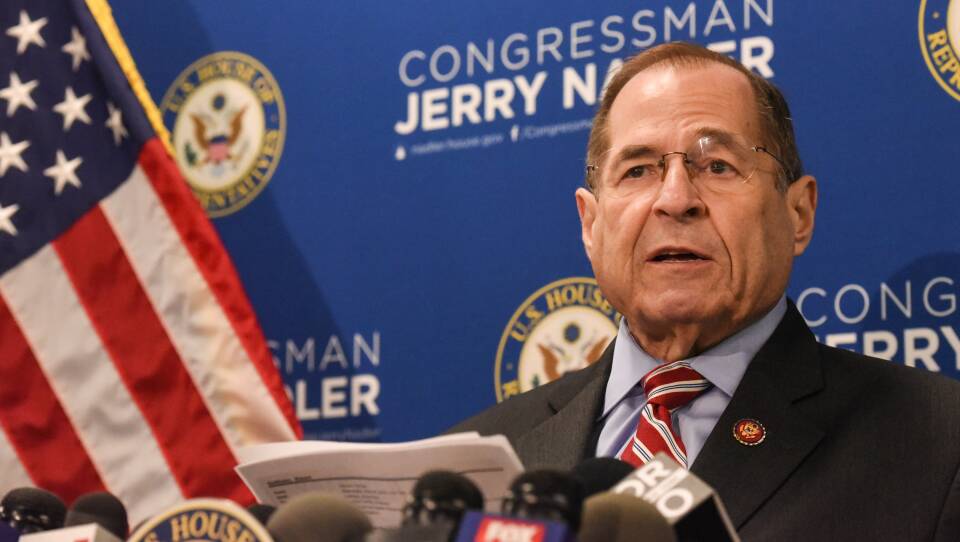The Justice Department is set to begin providing some documents to the House Judiciary Committee after a dispute over a subpoena — but members of Congress are nonetheless expected to go ahead with a contempt vote on Tuesday targeting Attorney General William Barr.
Judiciary Committee Chairman Jerry Nadler, D-N.Y., announced the agreement on Monday, but the committee's staffers said nothing had changed about plans for Tuesday to vote to authorize a civil contempt lawsuit against Barr and former White House counsel Don McGahn.
Nadler appears to want to keep the door open to a contempt action if Barr and the Justice Department don't continue to play ball.
"We have agreed to allow the department time to demonstrate compliance with this agreement," he said.
Continued Nadler: "If the department proceeds in good faith and we are able to obtain everything that we need, then there will be no need to take further steps. If important information is held back, then we will have no choice but to enforce our subpoena in court and consider other remedies. It is critical that Congress is able to obtain the information we need to do our jobs, ensuring no one is above the law and bringing the American public the transparency they deserve."
What the announcement on Monday may mean in practical terms is that the House could take the procedural steps necessary to load up the legal ammunition it's prepared to use against Barr without actually firing it.
Judiciary Committee ranking Republican Doug Collins of Georgia welcomed the agreement, which he said undercut charges by Democrats that the Trump administration is "stonewalling" Congress, but asked why the Democratic majority would go ahead with a contempt vote in view of the concessions made by the Justice Department.
"In light of today's agreement from the Justice Department, it's logical to ask: Is the chairman prepared to rescind his baseless recommendation to hold the attorney general in contempt, or do House Democrats still plan to green light lawsuits against the attorney general and former White House counsel tomorrow?" Collins asked.
The dispute centers over underlying evidence developed during the Russia investigation by the office of former special counsel Robert Mueller. Nadler wanted an unredacted copy of Mueller's final report and material collected by the special counsel's team that informed its findings.
Barr and the Justice Department didn't agree to give it. Although Barr said he was willing to let some members of Congress see some portions of Mueller's work product that weren't public, the attorney general said he was prohibited from giving Nadler and Democrats everything they sought.
The dispute escalated to the point of a subpoena, which Barr rejected with a recommendation that Trump invoke executive privilege — the doctrine that permits a presidential administration to shield some of its internal workings from public view.
The White House also cited that privilege in directing McGahn not to appear before Congress or give members notes or other materials from his time in the White House. McGahn is the key player in a few central episodes described in Volume II of Mueller's report, including a request by Trump that McGahn remove Mueller and then later, a request by Trump that McGahn falsify evidence denying the earlier request took place. McGahn declined .
Trump's critics call that evidence that he obstructed justice by trying to frustrate the Russia investigation.
Democrats want to hear more, and that is what had set the stage for the vote expected Tuesday on contempt for Barr. With it, members of Congress could authorize House lawyers to file lawsuits in order to ask a judge to compel Barr and McGahn to hand over the material Nadler sought.
NPR congressional correspondent Susan Davis contributed to this report.
Copyright 2019 NPR. To see more, visit https://www.npr.org.



